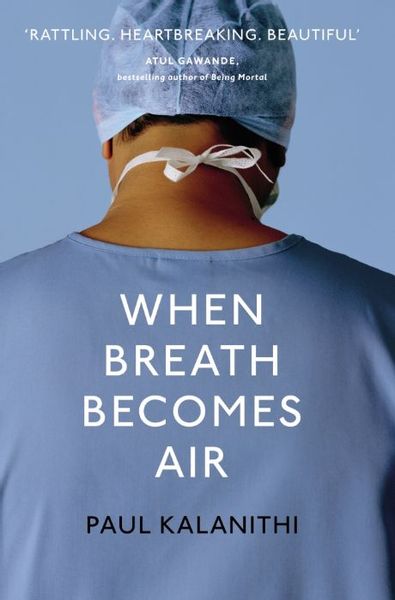
When Breath Becomes Air
At the age of thirty-six, on the verge of completing a decade’s training as a neurosurgeon, Paul Kalanithi was diagnosed with inoperable lung cancer. One day he was a doctor treating the dying, the next he was a patient struggling to live. When Breath Becomes Air chronicles Kalanithi’s transformation from a medical student asking what makes a virtuous and meaningful life into a neurosurgeon working in the core of human identity – the brain – and finally into a patient and a new father. What makes life worth living in the face of death? What do you do when when life is catastrophically interrupted? What does it mean to have a child as your own life fades away? Paul Kalanithi died while working on this profoundly moving book, yet his words live on as a guide to us all. When Breath Becomes Air is a life-affirming reflection on facing our mortality and on the relationship between doctor and patient, from a gifted writer who became both.
Reviews
Fred Rivett@fredrivett
Cassandra Tang@tangaroo
r@zaitountrees
Tina Villarete@tinavillarete
sam@smrh01
jus@stilesrick
Ada@adasel
Emily Burns@emilymelissabee
Elisavet Rozaki @elisav3t
Monicap@insult_the_glory
ady@thespeerlies
Ubeyd Gencer@ubeyd
Isabella @iscbella
casey@edgerunner
Deepika Ramesh@theboookdog
Althea Trixie@strawverre
Laura K@nifflersmom
Ciel Zero@clumsyciel
dae@daedalost
Cece Page@cecebookpage
Ann Gabrielle@anngabr
♡@miam
Laurianne@bruisedcloud
jess@visceralreverie
Highlights
🫶🏽@fruitbat
🫶🏽@fruitbat
Amelia Hruby@ameliajo
Page 115
Amelia Hruby@ameliajo
Page 98
camille leung@cami11e
Cassandra Tang@tangaroo
Cassandra Tang@tangaroo
Cassandra Tang@tangaroo
pat@senputtie
Page 220
pat@senputtie
Page 119
pat@senputtie
Page 105
bree ♡̷̷̷@aubwrry
bree ♡̷̷̷@aubwrry
bree ♡̷̷̷@aubwrry
casey@edgerunner
casey@edgerunner
casey@edgerunner
Kamu Pancholi@kamupancholi
Kamu Pancholi@kamupancholi
Kamu Pancholi@kamupancholi
Kamu Pancholi@kamupancholi
Kamu Pancholi@kamupancholi
Sofia Kopkášová@sofijajajaja
Syrina@syrinaina
Page 150